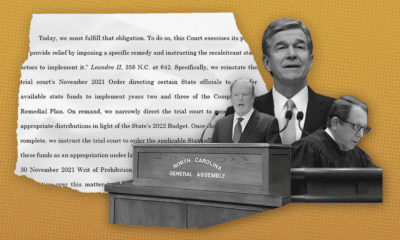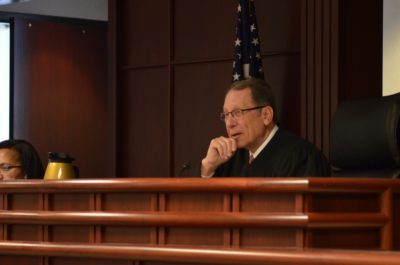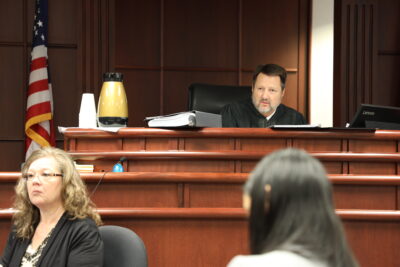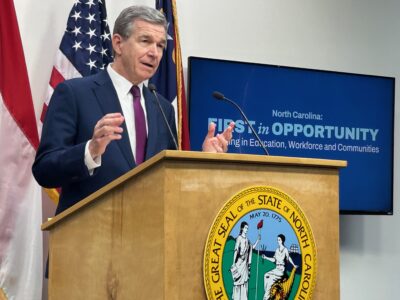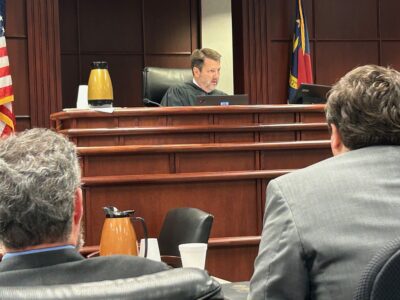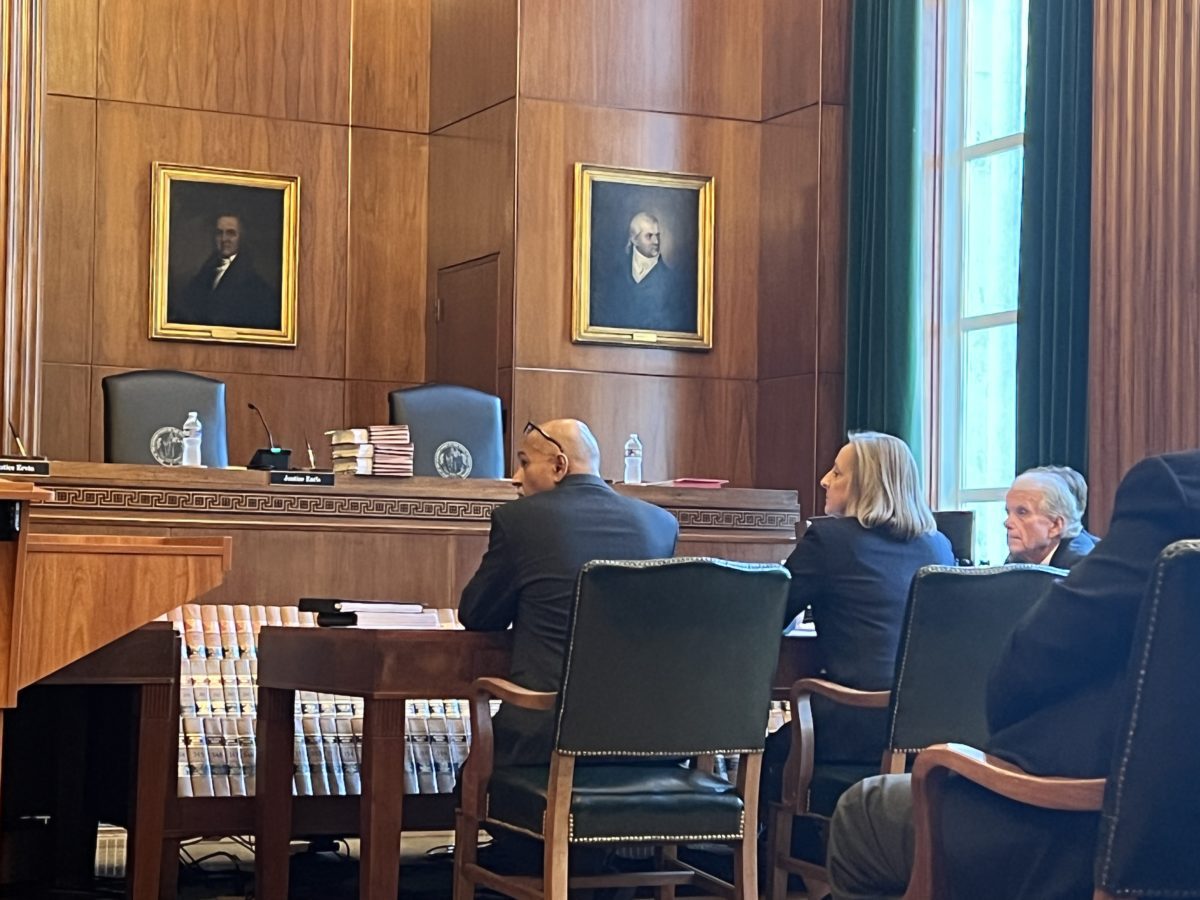
|
|
On Feb. 22, lawyers will crowd the North Carolina Supreme Court’s wooden-paneled courtroom for the fifth time to argue before the justices about the state’s constitutional obligation to provide children with the opportunity for a sound, basic education.
Minimally at stake is the deficit in the state’s 2022 budget of $678 million for years two and three of the Comprehensive Remedial Plan (CRP).
The higher stakes involve whether the 30-year Leandro litigation will continue to be a way to improve education for students across this state moving forward.
Here is a recently updated article on everything you need to know about the Leandro litigation, including what the CRP is.
Here is all of EdNC’s coverage of Leandro.
How did we get here?
The lead up to this latest round is the Supreme Court’s Leandro IV opinion from November 2022, in which the majority ruled that the trial court could enforce the seven-year CRP in response to statewide constitutional violations by the state.
The court’s remand order to the trial court was straightforward: (1) recalculate the amount needed to fund the CRP in years two and three based on the state’s 2022 budget; (2) put back into place the directive for state actors (including the state controller) to transfer the funds necessary to make up for any deficit between the state budget and needed funding; and (3) maintain jurisdiction over the case.
Following the remand, Judge James Ammons issued the trial court’s order in April of last year, determining that the state budget was short $678 million. He did not order the transfer of funds due to an intervening order in March by the N.C. Supreme Court. The Defendant Intervenors representing the interests of the General Assembly appealed. On discretionary review, the Supreme Court accepted the appeal “solely on the question of whether the trial court lacked subject matter jurisdiction to enter its order of 17 April 2023.”
“Subject matter jurisdiction” is essentially the authority to hear issues and set orders for a case. In this instance, it is the authority for finding statewide constitutional violations and ordering a statewide remedy.
The Plaintiffs for school districts and school children have a simple answer to the Supreme Court’s question of the trial court’s subject matter jurisdiction: “Of course, yes.” As the Plaintiffs argue, the Supreme Court has addressed the role of the trial court in the litigation numerous times, including this specific remand order in the 2022 opinion. How could the Supreme Court remand to the trial court with specific directives if the Supreme Court did not agree that the trial court had the authority to act upon them?
The State, as represented by the Attorney General, echoes the arguments of the Plaintiffs. Since the beginning of the lawsuit, the “State” has been a named defendant and has encompassed the executive and legislative branches of government; beginning in 2018, the executive branch began working with the Plaintiffs to develop a statewide remedial plan.
The State’s brief argues, “This Court should not countenance Legislative Intervenors’ latest attempt to shirk their constitutional responsibility. The only issue this Court has agreed to review here is whether the trial court had jurisdiction to enter a statewide educational remedy like the Comprehensive Remedial Plan (CRP). It plainly did — and this Court said so just one year ago.”
The Defendant Intervenors representing the interests of the General Assembly disagree, arguing that the violation only applies to certain districts rather than the whole state. The legislative intervenors argue in their brief: “So, in essence, the majority in Hoke County III [Leandro IV] failed to follow the law of the case in Leandro and Hoke County I and this is the Court’s opportunity to correct that error. The lack of a judgment establishing the existence of a violation anywhere other than Hoke and Halifax Counties means the Court lacked jurisdiction to order the CRP.” The Defendant Intervenors further argue that one of the reasons for the lack of subject matter jurisdiction is that the Plaintiffs failed to have standing — the role through their representation of a select number of districts — to seek a statewide remedy for violations. They argue that this issue has not yet been addressed by the Supreme Court.
The political makeup of the Supreme Court
The underlying tension in this appeal is whether the new 5-2 Republican majority on the Supreme Court will undo key components of Leandro IV. The Supreme Court issued its 4-3 Leandro IV opinion four days before the general elections in 2022. The elections shifted the Supreme Court from four Democrats and three Republicans to five Republicans and two Democrats. Justice Robin Hudson, the author of Leandro IV, retired in December 2022. The new Republicans, Justice Richard Dietz and Justice Trey Allen, took office on Jan. 1, 2023.
What do we know about what the justices think about Leandro?
Usually before oral arguments, we don’t know a lot about what questions the justices might ask or what they think about legal issues in a case. But in this case, all seven justices have joined in written decisions related to the upcoming hearing.
Four of the current justices participated in the Leandro IV opinion. Justice Anita Earl (D) was part of the majority (finding subject matter jurisdiction); Justice Phil Berger, Jr. (R) wrote the dissenting opinion, which was joined by Chief Justice Paul Newby (R) and Justice Tamara Barringer (R). In the Supreme Court order allowing this petition for a hearing on subject matter jurisdiction, Justice Berger wrote a concurring decision to amplify why the hearing was appropriate, which was joined by Justices Richard Dietz (R) and Trey Allen (R). Justice Anita Earl dissented and was joined in her dissent by Justice Allison Riggs (D).
Justice Berger’s concurrence and Justice Earl’s dissent offer a preview of what is to come:
Justice Berger Concurring: “[I]n its rush to publish an opinion in the prior matter, the majority [in Leandro IV] declined to address fundamental subject matter jurisdiction questions. . . .Even legal neophytes understand that subject matter jurisdiction can never be waived and can be raised at any time.”
Justice Earls Dissenting: “We already grappled with and resolved the question of subject matter jurisdiction in this case — nothing imperils that decision or requires us to revisit it. But by alchemizing its disagreement with Leandro IV into a ‘jurisdictional’ issue, the majority gives itself a tool to rewrite — and litigants to resist — our earlier decisions.”
It is an admired quality of a justice to ask questions during oral argument in a way that suggests an openness to the decision. Watch for that at the hearing.
And the written decisions preceding the Feb. 22 hearing suggest that in addition to the substantive issue of subject matter jurisdiction, judicial conduct as it relates to recognized appellate court procedure and principles, such as relying on precedent, may also be on trial. Both can be influenced by politics. Watch for that at the hearing.
Leandro has had a hopeful history in regard to partisanship. The Supreme Court issued a unanimous opinion in Leandro I, establishing the right to the opportunity for a sound, basic education, with five Democrats and two Republicans. The court flipped by the time of the 2004 Leandro II opinion, yet the six Republicans and one Democrat joined for a unanimous opinion establishing a constitutional violation. At the time of the 2013 Leandro III opinion on pre-kindergarten, elections for justices were nonpartisan: The justices unanimously joined the holding that the issues were rendered moot by legislation and that the constitutional right to education remains in full force. It is only the 4-3 Leandro IV opinion, upholding the statewide remedial plan, where the justices have split along party lines in one of these major rulings.
What could happen after the hearing?
If the Supreme Court affirms Leandro IV, finding that the trial court has jurisdiction (or decides not to issue an opinion on the matter), then it likely will direct the trial court to once again recalculate the figures of the deficit between the most recent state budget and the funds needed to implement the plan. The issue of directing the state controller to transfer funds does not appear to be before the court, thus leaving enforcement unclear.
A decision that the trial court does not have authority over a statewide plan to remedy constitutional violations has other consequences. The CRP that is underfunded by $687 million will still exist. Every Child NC has calculated what full funding would mean in each school district community: The funds show up as additional PreK slots, Smart Start funds, critical personnel, professional development, curriculum materials, and other critical resources to provide a sound, basic education. Communities will need to advocate for funding with their legislators to obtain these resources.
If the Supreme Court reverses Leandro IV to find that the trial court lacks jurisdiction, the right to education will still exist in the constitution — as it has since 1868 (with minimal changes), along with the clarity around the right crafted in Leandro I and II. With such a court opinion, advocates who believe in the importance of enforcing the right to education have options. They can create a new case to specifically include all 115 school districts or initiate hearings or lawsuits in each of the districts, as hinted at by the legal scholars in their amicus brief. Or they can create class action lawsuits to address unmet needs of particular groups of students.
After all, 30 years of litigation demonstrates real persistence. Having devoted thousands of hours to pursue the constitutional rights of children for their education, why would they stop now?
Behind the Story
Ann McColl is an attorney and state constitutional scholar, who has worked in the field of education law and policy since graduating from the UNC Law School in 1991.
She has written for EdNC about Leandro and other constitutional issues since 2015.
She will be covering the hearing and the decision for EdNC. Stay tuned.



